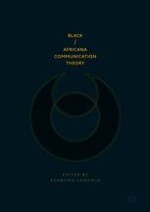2018 | OriginalPaper | Buchkapitel
10. Dynamism: N’digbo and Communication in Post-modernism
verfasst von : Chuka Onwumechili
Erschienen in: Black/Africana Communication Theory
Aktivieren Sie unsere intelligente Suche, um passende Fachinhalte oder Patente zu finden.
Wählen Sie Textabschnitte aus um mit Künstlicher Intelligenz passenden Patente zu finden. powered by
Markieren Sie Textabschnitte, um KI-gestützt weitere passende Inhalte zu finden. powered by
